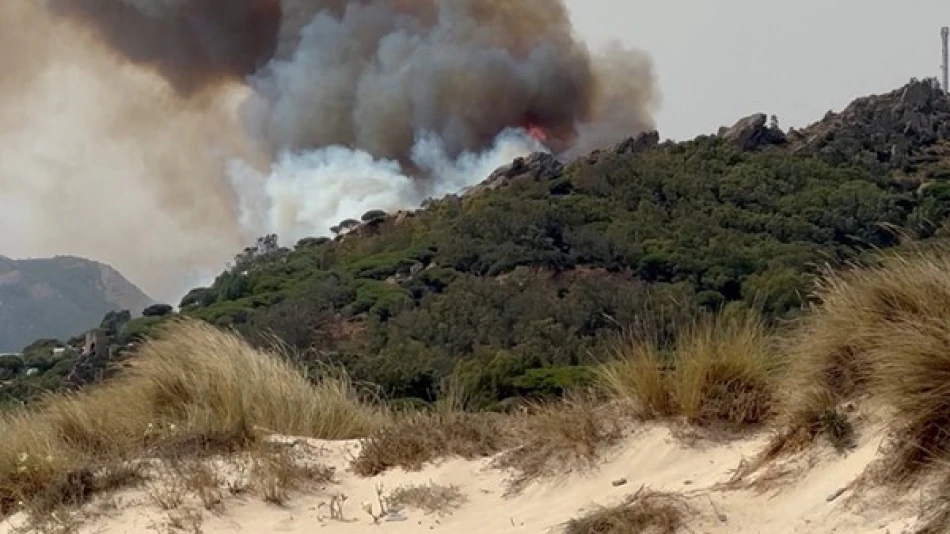
Tourists Evacuated as Raging Wildfires Spread Across Southern Spain
Spain's Tarifa Wildfire Exposes Tourism Sector's Climate Vulnerability
A rapidly spreading wildfire near Spain's popular coastal resort of Tarifa has forced the evacuation of 1,550 people and thousands of vehicles, highlighting the growing threat climate change poses to Europe's tourism industry. While firefighters have successfully protected the hotel zone, the blaze remains uncontrolled and underscores Spain's increasing vulnerability to extreme weather events during peak tourist season.
Fire Spreads Despite Containment Efforts
The wildfire, which began Tuesday afternoon in a camping trailer at Monte La Peña campsite just kilometers from Tarifa, has expanded rapidly due to the region's notorious strong winds near the Strait of Gibraltar. Antonio Sanz, Andalusia's regional security chief, confirmed that fire suppression systems have "secured the southern area where the hotels are located" but cautioned that changing wind patterns remain a primary concern.
Fortunately, no injuries have been reported, and the flames have not reached Tarifa's city center, home to 19,000 residents in Cádiz province. However, tourists and campers remain unable to return to their accommodations as the fire continues to burn out of control.
Tourism Industry Under Climate Pressure
This incident reflects a broader challenge facing Mediterranean tourism destinations as climate change intensifies wildfire risks. Spain's tourism sector, which contributes roughly 12% of GDP, increasingly faces disruptions during what should be peak earning season.
Economic Impact on Coastal Tourism
Tarifa, known for its windsurfing and proximity to Morocco, represents the type of specialized tourism destination that cannot easily relocate operations when threatened by natural disasters. The evacuation of thousands of vehicles—mostly belonging to coastal visitors—demonstrates how quickly tourism infrastructure can be overwhelmed by climate emergencies.
Unlike major urban centers with diversified economies, coastal resort towns like Tarifa depend heavily on summer tourism revenue, making mid-season evacuations particularly costly for local businesses already recovering from pandemic impacts.
Spain's Growing Fire Risk
The Tarifa blaze coincides with an intense heat wave pushing temperatures above 40°C (104°F) across multiple Spanish regions this week. Civil protection services have warned that wildfire risk remains "very high throughout most of the country," suggesting this may not be an isolated incident.
Spain has experienced increasingly severe wildfire seasons in recent years, with 2022 seeing over 300,000 hectares burned—nearly triple the previous decade's average. The country's position as Europe's second-largest tourism destination makes these climate risks economically significant beyond national borders.
Regional Implications for Mediterranean Tourism
Similar wildfire disruptions have affected tourism in Greece, Turkey, and southern France in recent summers, suggesting a regional pattern that could reshape travel preferences. Insurance costs for tourism infrastructure in fire-prone areas are likely to increase, potentially affecting investment in coastal development projects.
The incident also highlights infrastructure vulnerabilities in popular camping and outdoor tourism sectors, where evacuation logistics prove more complex than in traditional hotel zones. As extreme weather events become more frequent, tourism operators may need to invest significantly in emergency preparedness and alternative accommodation strategies.
Most Viewed News

 Layla Al Mansoori
Layla Al Mansoori






